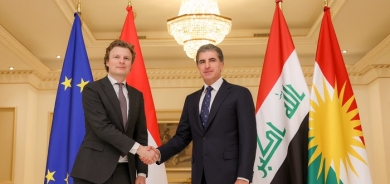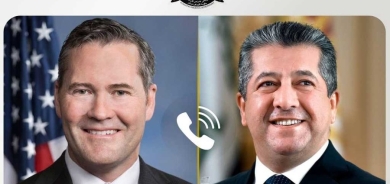Iran sends nuclear talks response; US casts doubt on offer

Iran sent a written response early Friday in negotiations over a final draft of a roadmap for parties to return to its tattered nuclear deal with world powers, though the U.S. cast doubt on Tehran’s offer.
Iran’s Foreign Ministry spokesman Nasser Kanaani said in a statement that “the sent text has a constructive approach with the aim of finalizing the negotiations.”
However, as in the last round of written proposals and counters, Iran offered no public acknowledgment of what it said. Iran’s Supreme Leader Ayatollah Ali Khamenei, who has final say on all matters of state in the country’s Shiite theocracy, largely has been silent in recent weeks on the negotiations.
In Washington, the State Department confirmed it received Iran’s response through the European Union, which has served as an intermediary for the indirect talks after then-President Donald Trump unilaterally withdrew America from the accord in 2018.
“We are studying it and will respond through the EU, but unfortunately it is not constructive,” the State Department said, similarly not elaborating on what the proposal contained.
The 2015 deal saw Iran greatly curtail its enrichment of uranium in exchange for the lifting of economic sanctions. Under the deal, Iran could have only 300 kilograms (660 pounds) of uranium enriched up to 3.67% under constant scrutiny of International Atomic Energy Agency surveillance cameras and inspectors.
Now, however, the last public IAEA count shows Iran has a stockpile of some 3,800 kilograms (8,370 pounds) of enriched uranium. More worrying for nonprofileration experts, Iran now enriches uranium up to 60% purity — a level it never reached before that is a short, technical step away from 90%. Those experts warn Iran has enough 60%-enriched uranium to reprocess into fuel for at least one nuclear bomb.
While Iran long has maintained its program is peaceful, officials now openly discuss Tehran’s ability to seek an atomic bomb if it wanted. Meanwhile, a series of attacks across the wider Mideast since the deal’s collapse have raised tensions of a wider conflict breaking out.
Both the U.S. and Iran have tried to portray the ongoing negotiations as bending in their favor on issues like the American sanctions targeting Tehran’s paramilitary Revolutionary Guard.
Earlier this week, Iran’s hard-line President Ebrahim Raisi maintained that an IAEA investigation into traces of man-made uranium found at undeclared nuclear sites in the country must be halted.
___
Associated Press writer Matthew Lee in Washington contributed to this report.
AP













